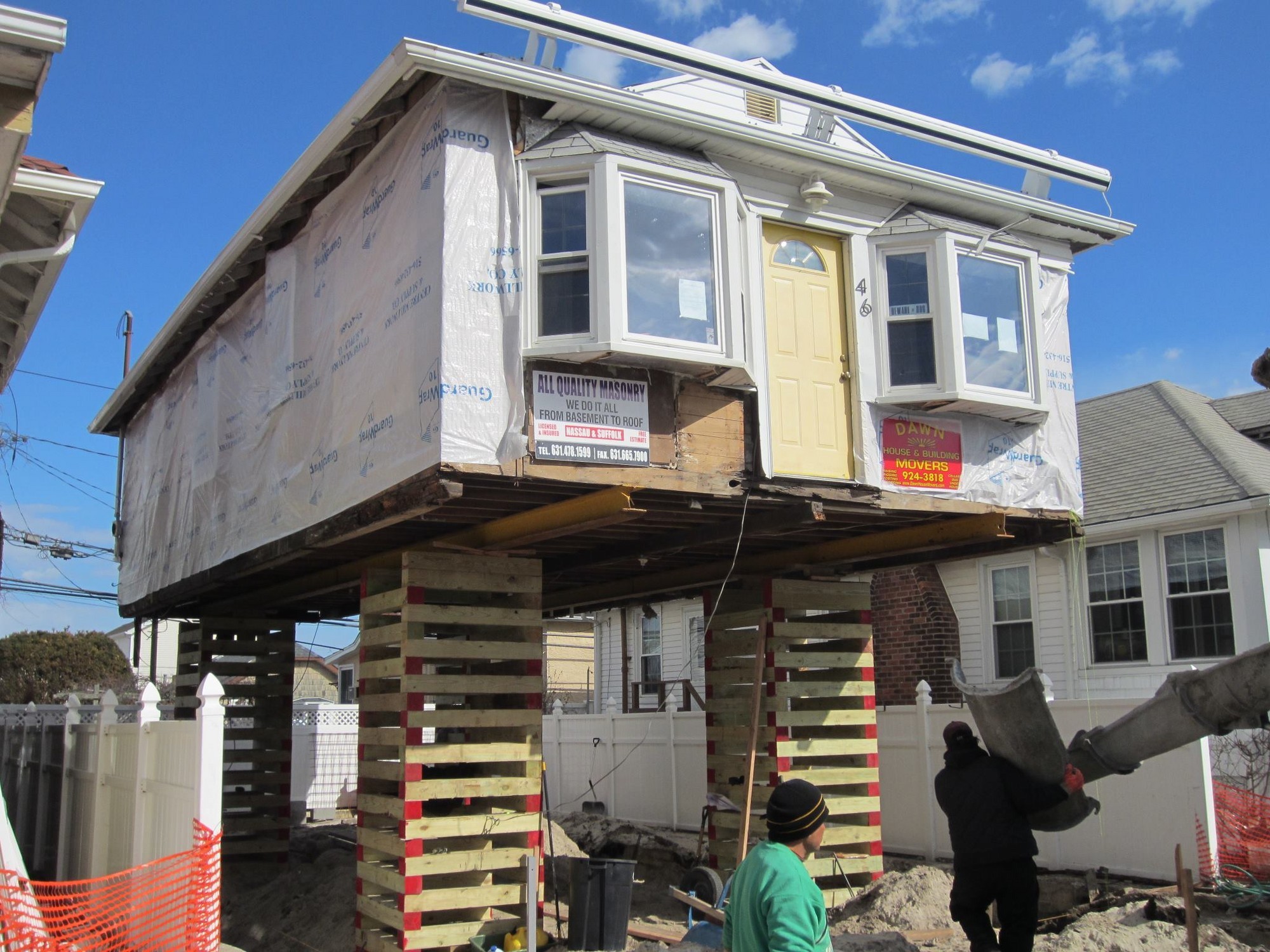Homeowners who elevate may owe LIPA thousands
Long Beach officials vow to fight utility
A process that already has residents up a wall may now send them up a pole.
A number of homeowners in Long Beach who are attempting to elevate their homes to avoid costly flood insurance rate increases say that the Long Island Power Authority is making the process even more cumbersome — and costly.
Some who have already raised their homes say LIPA has informed them that they must now pay for the installation of new electric poles, because the current ones are not tall enough to provide electricity to the elevated houses.
“[LIPA] got $200 million and now they want us to pay for their infrastructure?” one outraged homeowner said at last week’s forum with Federal Emergency Management Agency and other officials.
On April 30, LIPA was allocated a $267 million reimbursement from FEMA’s Public Assistance program for Sandy-related damages and costs.
One homeowner said that she wants to raise her home, but LIPA is what is keeping her from doing so. She said that she found out from LIPA that if she raises her home, she would be responsible for paying to replace the electric poles her house utilizes, a cost, she was told, that could amount to $20,000 per pole.
Officials from the city’s Building Department said that they met with LIPA on May 1 and came to an agreement that LIPA must approve all residential building plans before construction begins on elevated homes, to avoid any problems with the agency down the road.
However, city officials said that they are still fighting LIPA over the cost of pole elevations.
“It is simply cruel and plainly unreasonable for LIPA to look to any homeowner to cover what is a LIPA cost,” City Council President Scott Mandel said. “These poles and wires are LIPA’s property. They do have utility easements to use residential properties for this purpose, but it is still their infrastructure, and the homeowners should have no financial responsibility to pay for it, especially when elevating their house in accordance with federal, state and local requirements.”
“We are currently analyzing the work needed to be done and are engaged with those municipalities in the affected areas in order to address new state regulations and municipal building codes, as well as improvements to the electrical infrastructure in those areas,” LIPA spokesman Mark Gross said in a statement. “At this point, any discussion related to the costs of those new requirements are premature.”

 44.0°,
Mostly Cloudy
44.0°,
Mostly Cloudy 




